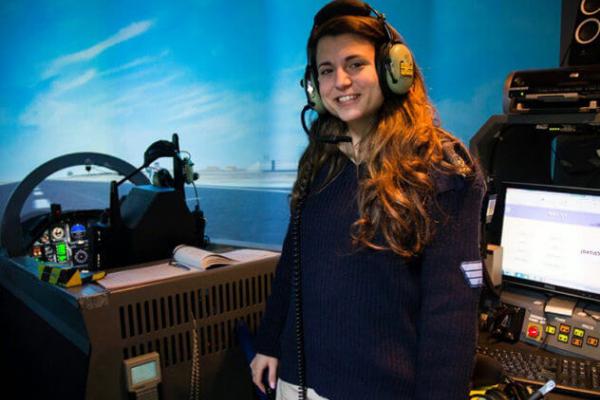Mar 23, 2017
A year and a half after joining the Air Force, Ofir is halfway through her stint as a flight simulator instructor. Despite the rigors of military life she continues to keep kosher and observe the Sabbath.
Ofir is one of a growing number of Orthodox Jewish women who see no contradiction between serving in the military and maintaining a religious lifestyle – a trend that some Israeli rabbis hope to end.
Read the Full Article

Already a subscriber? Login
